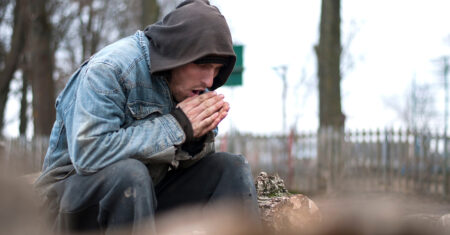By Stacy M. Brown
NNPA Newswire Senior National Correspondent
@StacyBrownMedia
Obesity Care Week 2023 (OCW) kicked off on Monday, Feb. 27, with a focus on the disproportionate impact of obesity on communities of color.
Health officials responsible for OCW said racial and ethnic minorities have a higher rate of chronic diseases. African Americans have the highest rate of chronic diseases.
According to recent data, almost 50% of African Americans have obesity, and approximately 4 out of 5 Black women have overweight or obesity.
The causes of obesity are complex, and a person’s access to healthy food, safe places to exercise and play, stable and affordable housing, access to quality health care, and social attitudes about body weight all play a role in whether a person will have obesity.
However, communities of color face unique challenges in each of these areas, health officials stated.
For example, in the United States, only 8% of African Americans live in a census tract with a supermarket, while 31% of white Americans have one.
This means that minorities more often shop in small stores or bodegas or eat at fast food restaurants. These places usually have less fresh food and more processed food.
Cultural attitudes about body weight also play a role, with non-Hispanic white women more satisfied with their body size than non-Hispanic Black women, and Hispanic women more interested in losing weight and eating healthy.
Evidence shows that the African American population has less of an impact on existing weight loss interventions, with Black men and women achieving smaller weight losses.
Health officials noted that this suggests that intensive behavioral programs result in lower levels of adherence in Black people than whites.
Founded in 2015, Obesity Care Week has a global vision for a society that values science and clinically based care and understands, respects, and accepts the complexities of obesity.
Organizers have focused on changing the way society cares about obesity and have worked to empower individuals by providing affordable and comprehensive care and prevention programs, increasing awareness of weight bias, and working to eliminate obesity.
Researchers said obesity not only affects overall health, but it also increases the risk of complications from COVID-19.
According to a recent study of hospitalized patients in the US, obesity may also predispose patients to getting the virus and is the strongest predictor for COVID-19 complications.
Unfortunately, African Americans are also disproportionately affected by COVID-19. According to the CDC, 33% of those hospitalized with the virus were African Americans, compared to 13% of the US population.
Inequities in access to and quality of care result in poor overall health and many chronic diseases, such as obesity and diabetes.
This can affect individuals’ chances of getting COVID-19.
The communities in which African Americans live may place them at greater risk for developing chronic illnesses. For example, they may not have access to healthy foods or safe places to play or exercise.
For people who try to eat healthy, living in a food desert means that they must go to a grocery store.
They often must do this by public transportation.
These disparities need to be addressed so that all communities have the resources and support they need to achieve and maintain a healthy weight.
“Obesity Care Week 2023 highlights the need for comprehensive and inclusive approaches to obesity care that consider the unique challenges faced by communities of color,” organizers stated.






